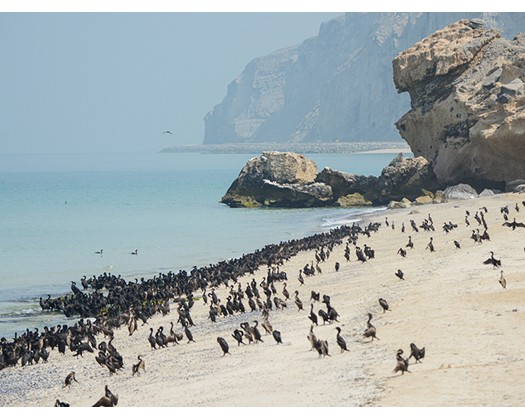Muscat: According to the 2024 Environmental Performance Index (EPI) statistics, the Sultanate of Oman has secured the second position among GCC states and in the Middle East region.
This information was disclosed by the Centre for Environmental Law and Policy at the University of Yale in the United States.
Oman has made significant progress by advancing 99 places in the EPI rankings. Its score in the index stands at 51.9 out of 100, placing Oman in the 50th position. This is a remarkable improvement from its previous ranking of 149th out of 180 countries in 2022. This achievement is expected to have a positive impact on various development sectors, particularly the economy.
The EPI primarily focuses on the health and sustainability of ecosystems. It evaluates how successful countries are in preserving, protecting, and enhancing their ecosystems, as well as the services they provide.
The vitality of ecosystems accounts for 42 percent of the total score in the index. It encompasses six categories that assess different aspects, including habitat and biodiversity, ecosystem services, fishing areas, acidic rains, agriculture, and water resources.
Additionally, the index measures the extent to which countries implement environmental health policies to safeguard their populations from environmental risks. This component contributes 20 percent to the overall index score and comprises four segments: air quality, drinking water and sanitation, heavy metals, and waste management.
Oman, represented by the Environment Authority and other relevant organizations, has taken significant measures to meet the standards set for the "quality of ecosystems" pillar. This pillar focuses on the protection and optimal management of biodiversity.
The ecosystem quality component makes up approximately 42 percent of the total sub-indices weight. The implementation of Royal decrees to establish new natural reserves significantly boosted Oman's rating, resulting in the expansion of the total reserves in the Sultanate to around 30. These decrees also contributed to the increase in the number of biodiversity-focused sites to over 25.
The Environment Authority has taken steps to efficiently manage the nature reserves by providing trained personnel, necessary infrastructure, and relocation methods, leading to the removal of over one million alien and invasive birds. Furthermore, the Environment Authority has supported initiatives for the rehabilitation and protection of endangered species, land reclamation efforts, and combating desertification.













